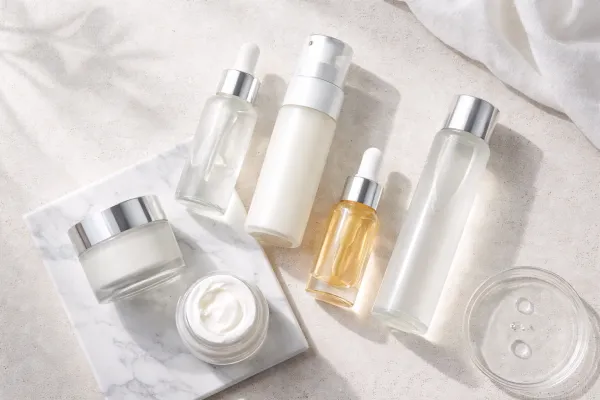Does Sugar Really Worsen Your Skin? Uncovering the Truth Behind the Myths
Explore the truth about sugar's impact on skin health and debunk common myths for clearer skin!

In this article, we will explore the relationship between sugar and skin health.
Many people believe that sugar can negatively impact their skin, leading to issues like acne and inflammation. However, the truth is more complex than just blaming sugar for skin problems.
We will break down the science behind sugar's effects on the body and skin, debunk common myths, and provide practical tips for maintaining healthy skin.
Key Takeaways
- Sugar can increase inflammation in the body, which may affect skin health.
- Not all sugars are created equal; natural sugars can be better for your skin than processed ones.
- A balanced diet and hydration are essential for maintaining healthy skin.
- Managing stress and getting enough sleep can improve your skin's appearance.
- Using the right skincare products and routines is crucial for healthy skin.
The Science Behind Sugar and Skin Health

How Sugar Affects Your Body
When we think about sugar, we often picture sweet treats and desserts.
But did you know that sugar can have a big impact on our overall health?
Too much sugar can lead to various health issues, including skin problems. When we consume sugar, it can cause our blood sugar levels to spike, leading to inflammation in the body. This inflammation can show up on our skin as redness, puffiness, or even breakouts.
The Link Between Sugar and Inflammation
Sugar is known to trigger inflammation, which is a key player in many skin issues. Here’s how it works:
- Increased insulin levels: High sugar intake can lead to higher insulin levels, which may cause our skin to produce more oil.
- Glycation: Sugar can bind to proteins in our body, forming harmful molecules called AGEs (Advanced Glycation End-products). These can damage collagen and elastin, leading to premature aging.
- Inflammatory response: Our body reacts to excess sugar by producing inflammatory markers, which can worsen conditions like acne and rosacea.
Scientific Studies on Sugar and Skin
Several studies have explored the connection between sugar and skin health.
For instance, a study found that higher added sugar intake was associated with older epigenetic age.
This means that consuming too much sugar can make our skin look older than it really is.
Here’s a quick summary of some findings:
Study | Findings |
|---|---|
Study 1 | Higher sugar intake linked to increased acne severity |
Study 2 | |
Study 3 | Inflammation from sugar can worsen skin conditions |
Remember, being mindful of our sugar intake can help us maintain healthier skin. Let’s make choices that support our skin’s health!
Common Myths About Sugar and Skin
Myth: Sugar Causes Acne
We’ve all heard it: sugar is the enemy of clear skin.
But is it really true?
While sugar can lead to insulin spikes, which may increase androgens and inflammation, it’s not the sole cause of acne.
It’s a domino effect: sugar can contribute to a cycle that might worsen breakouts, but it’s not the only player in the game.
Myth: Cutting Out Sugar Clears Skin Instantly
Many of us think that ditching sugar will lead to instant clear skin.
Unfortunately, that’s not how it works. Our skin needs time to adjust, and other factors like hydration and overall diet play a huge role. So, while reducing sugar can help, it’s not a magic bullet.
Myth: Natural Sugars Are Better for Skin
We often believe that natural sugars, like those found in fruits, are harmless. But even these can affect our skin if consumed in excess. Moderation is key! Let’s not forget that all sugars can lead to inflammation if we overdo it.
Remember, understanding our skin and its reactions is a journey. Let’s take it step by step!
How Diet Influences Skin Health
Foods That Benefit Your Skin
When we think about keeping our skin happy, what we eat plays a huge role. Here are some foods we should consider adding to our plates:
- Fruits and Vegetables: Packed with vitamins and antioxidants, they help fight skin damage.
- Healthy Fats: Think avocados and nuts; they keep our skin moisturized and glowing.
- Whole Grains: Foods like brown rice and oats can help maintain our skin's balance.
The Role of Hydration
Staying hydrated is key! Drinking enough water helps our skin stay plump and reduces dryness. Here’s a simple way to remember:
- Aim for at least 8 glasses a day.
- Carry a water bottle to sip throughout the day.
- Add slices of lemon or cucumber for a refreshing twist.
Balancing Sugar Intake
We all know that too much sugar can be a problem. It can lead to inflammation and dull skin. Here are some tips to keep our sugar intake in check:
- Limit sugary snacks and drinks.
- Choose natural sweeteners when possible.
- Focus on whole foods that nourish our skin.
Remember, a balanced diet and proper hydration can make a big difference in how our skin looks and feels. Diet plays a significant role in maintaining and improving skin health through a variety of mechanisms involving gut health, hydration, inflammation, and more!
Practical Tips for Healthier Skin

Choosing the Right Skincare Products
When it comes to our skin, choosing the right products is crucial.
We should look for gentle cleansers and moisturizers that suit our skin type.
Here are some tips:
- Read labels: Check for ingredients that are known to be beneficial, like hyaluronic acid for hydration.
- Avoid harsh chemicals: Stay away from products with alcohol or strong fragrances that can irritate our skin.
- Patch test: Always do a patch test before trying new products to avoid any surprises.
Daily Skincare Routine
A consistent routine can make a big difference!
Here’s a simple daily plan:
- Cleanse: Start with a gentle cleanser to remove dirt and oil.
- Moisturize: Apply a suitable moisturizer to keep our skin hydrated.
- Sunscreen: Don’t forget to use sunscreen every day, even when it’s cloudy!
When to Seek Professional Help
Sometimes, our skin needs a little extra care. Here are signs we should look out for:
- Persistent acne or breakouts.
- Unusual dryness or irritation.
- Changes in skin texture or color.
Remember, taking care of our skin is a journey, not a race. Let’s enjoy the process and celebrate our progress!
Lifestyle Changes for Better Skin

Managing Stress Levels
Stress can really mess with our skin. When we’re stressed, our bodies produce more cortisol, which can lead to breakouts and other skin issues.
Here are some ways we can keep stress in check:
- Practice mindfulness or meditation: Just a few minutes a day can help.
- Engage in physical activity: Exercise releases endorphins, which can improve our mood.
- Connect with friends and family: Talking about our feelings can lighten the load.
Importance of Sleep
Getting enough sleep is crucial for skin repair.
When we don’t get enough rest, our skin can look tired and dull. Here’s how we can improve our sleep:
- Establish a bedtime routine: This signals our body that it’s time to wind down.
- Limit screen time before bed: The blue light can interfere with our sleep cycle.
- Create a comfortable sleep environment: A cool, dark room can help us sleep better.
Regular Exercise and Skin Health
Staying active is not just good for our bodies; it’s great for our skin too! Here’s how:
- Increased blood flow: Helps deliver nutrients to our skin.
- Sweating: Cleans out our pores and removes toxins.
- Boosts mood: A happy mind leads to happy skin!
Remember, taking care of our skin is a journey, not a race. Let’s enjoy it together!
Debunking Popular Skincare Myths

Myth: Hot Showers Hydrate Skin
We all love a hot shower, especially in winter, but here’s the kicker: hot water can actually dry out our skin.
Instead, we should stick to lukewarm water to help keep our skin’s natural oils intact.
Myth: Oily Skin Doesn’t Need Moisturizer
This is a big one! Even if our skin feels oily, it still needs hydration. S
kipping moisturizer can lead to more oil production. We should opt for lightweight, oil-free moisturizers to keep our skin balanced and happy.
Myth: Sunscreen Is Only for Summer
We all know that sunscreen is a must, but some folks think it’s only needed in the summer. This couldn’t be further from the truth!
UV rays can still harm our skin during winter, especially on cloudy days or when we’re indoors near windows.
So, let’s keep that SPF on our skin all year long!
Remember, adapting our skincare routine to the seasons is key! Let’s keep our skin glowing and healthy all year round!
Quick Recap of Myths
Myth | Truth |
|---|---|
Hot showers hydrate skin | They can actually dry it out! |
Oily skin doesn’t need moisturizer | All skin types need hydration! |
Sunscreen is only for summer | Needed year-round, even in winter! |
Let’s keep these myths in check and give our skin the care it deserves!
Wrapping It Up: The Sugar and Skin Connection
So, what’s the deal with sugar and our skin?
While it’s tempting to blame sugar for every breakout, the truth is a bit more complicated. Sure, eating too much sugar can lead to issues like inflammation and dullness, but it’s not the only factor at play.
Your overall diet, stress levels, and skincare routine all matter too. So, instead of cutting out sugar completely, try to enjoy it in moderation and focus on a balanced diet.
Remember, healthy skin comes from a mix of good habits, not just avoiding sweets. Keep your skincare game strong, and your skin will thank you!




